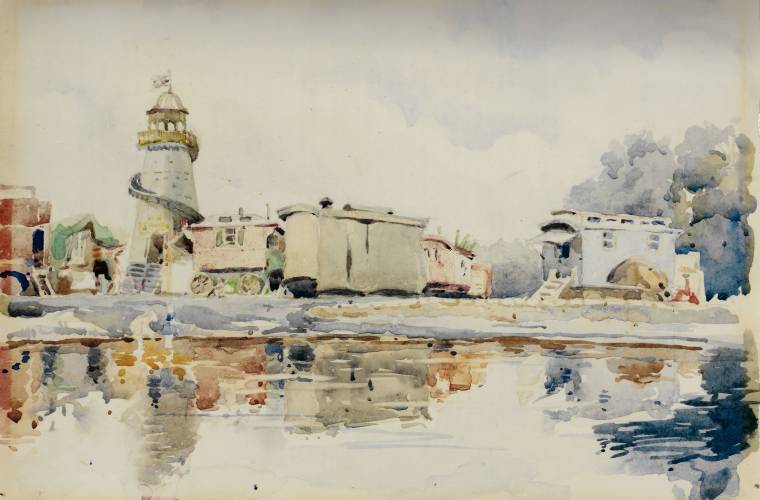Old Mrs Cook, she was old when we first knew her, [c. 1916]. Sitting bolt upright with the black shawl over her shoulder – a lace cushion on her lap and her fingers busy with the bobbins and pins. Her hair was parted in the centre and tightly drawn down each side shewing to full advantage the strong somewhat square face – very white and much lined – and the eyes steely blue and dominant. A personality one felt who sucked the vitality of the daughter who lived with her.
Aggie, an elderly woman, but still a child to the mother who completely dominated her – neat prim and spotlessly clean, moving with a mincing precision and putting wonderful stitches into the little linen squares or collars which were trimmed with her mother’s beautiful lace. She would show off the dainty laces touching each piece with loving care and telling of its particular make and the special name of each pattern.
She loved little children and would weave fairy stories for them. Her life seemed to be drawn from her mother, for after Mrs Cook died she was never the same. She failed quickly and seemed to have no anchorage.
Minnie, crippled with rheumatism has survived her these many years. Her patience, courage and cheerfulness are amazing. Unable to move, her hands and arms disfigured and stiff. She is often unable to feed herself or even to move in bed and yet she has a childlike faith and trust in the Heavenly Father.
I felt privileged that she sent for me one day and asked me if I thought the Vicar would bring her Communion and if I would arrange it with him. She still lies there – stone deaf but with an understanding heart. Vouchsafed sometimes in such full measure only to those who look on at life and who loved our Lord with the humility and simplicity which is Minnie Cook’s


